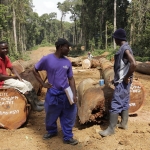UK: GMO Crop Testing Approved
LONDON, United Kingdom -- Unperturbed by threats of legal action from environmental groups, the UK's agriculture ministry announced Wednesday that it will allow genetically modified (GM) crop trials to go ahead this fall.
Launched in March, the government's three year Farm Scale Evaluation program allows independent researchers to see what effect growing GM crops might have on farmland wildlife, compared with growing non-GM crops.
Genetic modification is the technique of altering the genetic makeup of cells or individual organisms by inserting, removing or altering individual genes to achieve a particular result.
The program began by looking at GM maize, beet and spring sown oilseed rape. Wednesday's announcement paves the way for winter oilseed rape to be planted at 21 sites around England next month.
The Ministry of Agriculture, Fisheries and Food rejected claims by environmental group Greenpeace that the government would be acting unlawfully if it allowed the trials without planning permission.
Last week, citing legal opinion, Greenpeace argued that the Government should have applied for a change of use for the land involved in trials because the land will no longer be subject to agricultural use but used instead for research purposes.
"We have no doubt that agricultural research of the kind undertaken in the farm scale evaluations does come within the meaning of 'agriculture,'" said a ministry statement. "Research has been an integral feature of agriculture for many years."
The Ministry disputed Greenpeace's claim that, if planning permission were required, it would be up to the Government to apply for it.
"The farm scale evaluations are carried out by the companies concerned and not by government departments," said the statement.
The company involved in sowing winter oilseed rape is Aventis CropScience UK, a unit of Franco-German pharmaceuticals and agriculture group Aventis.
Last fall, the UK government announced that no GM crops would be grown commercially until a three year evaluation program was complete. Industry umbrella organization SCIMAC (supply chain initiative on modified agricultural crops) agreed to provide the GM seeds and arrange for crops to be grown on suitable farms as part of the trials.
Research contractors select suitable farms from those offered according to a protocol agreed by the independent Scientific Steering Committee, which advises on ecological studies in the farmscale evaluations.
The aim of the research is to test the effects of crop management on biodiversity. On the evaluation sites, GM crops are planted in part of the field, up to about 10 hectares (25 acres). The rest of the field is planted with an equivalent non-GM crop. Farmers grow and manage the GM and the non-GM crop as they would do normally.
The farmer records all pesticide and weed killer treatments and passes the information to the researchers. Researchers then study the differences in the number and types of weeds and insects (including butterflies and bees) in the GM half of the field, as compared with the other half of the field.
Earlier this month a panel of MPs called for stricter testing for GM contamination after Advanta Seeds UK admitted in April it had inadvertently sold rapeseed contaminated with GM material to British farmers.
In its announcement yesterday, the government said all farmers next to the trial sites had been notified and tried to allay fears of cross contamination by pointing to separation distances set up between crops.
GM crops grown in trials in the UK are cultivated within varying buffer zones to reduce the chances of a GM crop cross pollinating a conventional crop. For example, a separation distance of 200 meters is used to produce oilseed rape seed.
Greenpeace and environmental group Friends of the Earth say that distance is woefully inadequate.
"The time has come to abandon the trials because it's obvious the chances that GM crops will ever be able to be grown commercially without causing real economic damage to neighbouring arable farmers and beekeepers are next to none," said Friends of the Earth spokesman Pete Riley.
But the government's Advisory Committee on Releases to the Environment (ACRE) claims that the risk to human health and environment of pollen from GM crops being carried further by wind, bees and birds is negligible.
Genetic engineering is routinely used in thousands of research laboratories worldwide and has resulted in many new products and processes such as industrial enzymes and medicines such as insulin and vaccines.
But the use of genetic modification in agriculture and the food industry is currently the focus of intense public and political debate.
Consumers, environmentalists and some scientists worry about risks to human health and the environment. Among their concerns are that GM crops that rely upon high amounts of pesticides and fertilizers could cause toxic or allergenic effects and large scale elimination of indigenous agricultural and natural species.
- 181 Food and Agriculture



